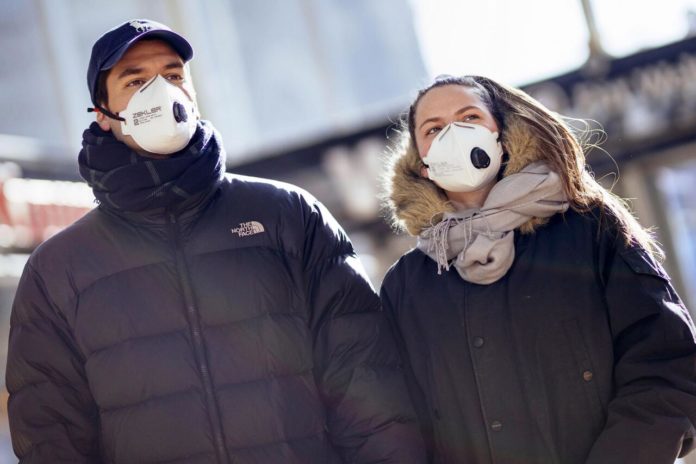
The number of corona infections admitted to hospitals is increasing, especially in Europe and most of all in the United States, and there is no end in sight. German infectiologist Johannes Bogner works at a Munich clinic – and makes an urgent appeal to the world. A short interview.
You shouldn’t leave home without a facemask
Is the mouthguard not only used to avoid infecting others?
Everyone thinks that mouth-nose protection is of no use. This is dangerous fake news. It is logical that protection against the mouth and nose helps prevent the virus from being inhaled. Even simple paper or textile protection is better than nothing!
Does your clinic have sufficient protective clothing and breathing masks in stock?
Our stock lasts for a while. Even if nothing is certain in these times – we are confident that there will be new sources of supply and that we will get supplies before things get tight.
Do the patients come to your home with mild symptoms or already seriously ill?
Unfortunately, there are many patients with relatively mild symptoms who would never go to a hospital without Corona. They should stay at home!
But many people feel unsafe or alone at home – often they are really alone. You are afraid to see a doctor. There is a mosaic of motivations that leads people to the hospital. But there are also people who already suffer badly from lack of oxygen.
Young patients are also sometimes seriously ill – Is the disease still limited to the group of older people?
We have patients in the age groups from 25 to 85, including young people who are sometimes seriously ill. I can only warn: youth does not protect against corona – what protects is mouth-nose protection!
Can the situation here be as dramatic as in France, so that instead of actively helping doctors, physicians have to provide active care for the dying because the ventilators are not enough for everyone?
Nobody can know that. We hope, of course, that we are very lucky and that things don’t go as far with us. Perhaps we can spread the infection rate over time so that our intensive care units are not overloaded.
But the other is also conceivable: We are already afraid that in seven, ten or fourteen days we will have to say: From age X or with a certain clinical picture, there is only death care.
It is an ethical-political decision. It is about the total resources available in terms of material, personnel, and clinic capacities. If it comes to this, the health minister will have to say at some point how to proceed.
Mr. Bogner, Bosch Healthcare Solutions has announced a Corona rapid test for April. Would this help in the current situation?
Johannes Bogner: The faster we have test results, the better we can plan with our capacities. That is why we welcome everything that enables as many and quick tests as possible.
Other manufacturers are also working on it, including other processes. Because with the so-called PCR tests to date, we unfortunately cannot determine whether the patient is already immune to the coronavirus.
It is also important that the tests are used sensibly. At the moment we don’t have enough time to test people who have no symptoms at all. For this, it should be quickly tested who has symptoms – and of course the contact persons of such symptom carriers.
How do you go about diagnosing an infection without a doubt?
The so-called PCR test cannot reliably identify a patient as being free of infection. So we have to observe individual information on the state of health, in addition there are relatively characteristic laboratory parameters, but above all changes that show an X-ray image or computed tomography of the lungs – Corona leaves very typical changes, and these are the most important information.
What is the current situation in your clinic?
I am in charge of clinical infectiology at the Medical Clinic and Polyclinic IV in Munich. As of Friday morning, we have 50 corona patients with different degrees of severity at the clinic.
Some of them are in the intensive care unit – this morning it was 13. So far we have had one death – it was a seriously ill older man. He actually died of heart disease, but the pneumonia he got from the coronavirus got the barrel overflowing, so to speak.
Clinics constantly adapt plans
Are your hospital capacities currently sufficient? And have you already sent “normal patients” home?
We are constantly adapting our plans and expanding our capacities. And yes, we have discharged the sick and are no longer accepting new “elective” patients, ie those whose treatment can be postponed. For example, if you need a hip operation, you will no longer have an appointment for an operation – this is now the case in all hospitals.
Are your employees adequately equipped to deal with this exceptional situation?
You can’t quickly retrain the staff. You don’t learn intensive care in a few days, that’s two years of specialist training. But we have adequately trained staff.
We attach great importance to the proper handling of protective equipment. Every employee is trained in it, must practice how to put on and take off the suit, how to put on and take off the protective mask.
Aren’t employees afraid of infecting themselves with this dangerous disease?
Corona is actually not a dangerous disease – it is harmless for 95 percent of the people who get it. But the feeling of knowing that there are also these five percent of severe cases, you have to deal with it mentally.
Not only have I made personal preparations in case I should fall ill – all employees are concerned. But we know we have to be careful.
And that distinguishes us from the people outside who go to the supermarket: many of them are not sufficiently aware of the danger. Nobody should be out and about without mouth and nose protection.
Source:





